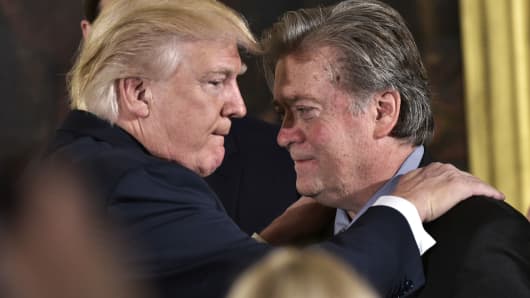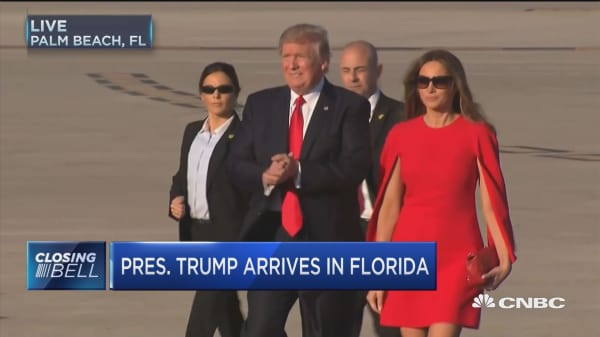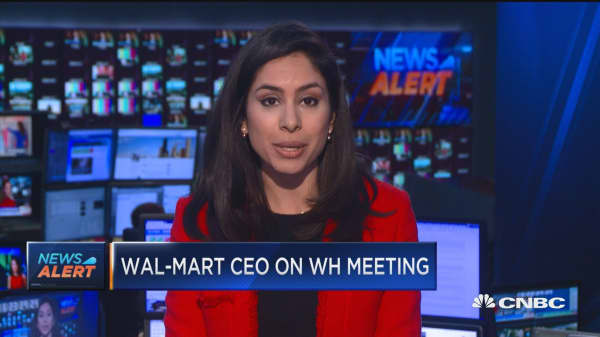In the past seven days Donald Trump created a global backlash with his Muslim Ban, escalated the tension between the United States and Mexico, snubbed Australia, selected a Supreme Court nominee who would have been nominated by the other 17 Republican presidential candidates Trump's working class base rejected, and asked attendees of the National Prayer Breakfast to pray for the ratings of Celebrity Apprentice.
One theory to explain the seemingly disconnected nature and impulsiveness of Trump's actions is that it's a form of planned chaos. The planned chaos theory says that Trump—aided by Stephen Bannon—is behaving like a maniac to divert attention from some sort of master plan.
The idea that there is a plan can provide comfort, even if the plan is really disturbing. Or, in the words of Heath Ledger's The Joker in The Dark Knight, "Nobody panics when things go according to plan, even if the plan is horrifying."
If that's the case, it might provide some odd measure of comfort to view Bannon as some sort of diabolical genius, and his plan as a blueprint for the next four years. It might be a crazy plan—one that is seemingly egging on a war with China, Muslims, Mexicans, and maybe even Australians—but, like The Joker says, at least it's a plan.
But if the first two weeks are an indication of how Bannon's master plan will work, it doesn't look like the work of a diabolical genius. It looks more like the work of someone who is learning on the fly, and not doing a very good job of it.
It looks like actual chaos, rather than brilliantly orchestrated, planned chaos.
Under the theory of planned chaos, a shocking, headline-grabbing event (like a Muslim Ban) would be used to distract from a more structural change (like the appointment of a truly radical Supreme Court justice).






